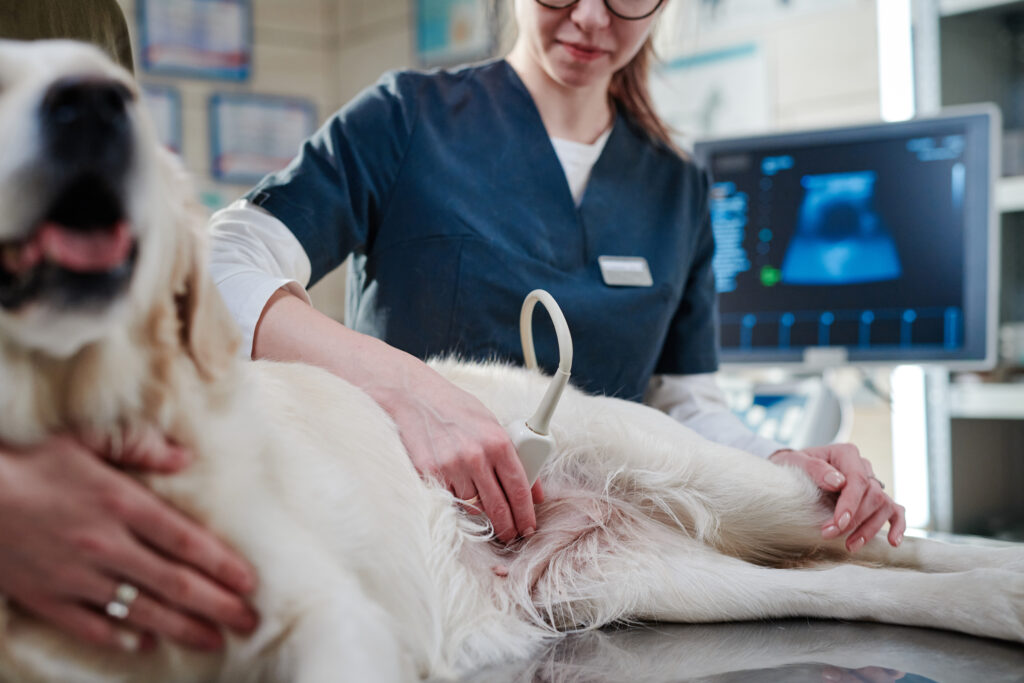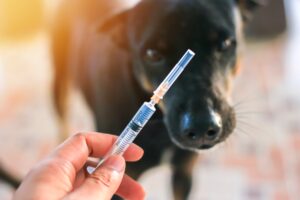Today, we’re excited to share valuable insights about pet ultrasounds. If you’re curious about this technology and how it benefits your pet, you’re in the right place. For more details or to schedule an appointment, please call us at (631) 271-8383.
Understanding Pet Ultrasounds
Pet ultrasounds are a cornerstone of veterinary diagnostic tools. This technology allows veterinarians to view the internal structures of your pet in real time. Unlike X-rays, which use radiation, ultrasounds employ high-frequency sound waves. These sound waves are completely safe and do not expose your pet to radiation, making them an ideal choice for frequent or routine examinations.
The Science Behind Ultrasound
The underlying science of ultrasound is based on sound waves. These sound waves are at a frequency that is higher than what the human ear can detect. When these waves are directed into the body, they interact with tissues, organs, and fluids by bouncing off them. The way these waves are reflected is then captured and translated into images that can be viewed on a screen.
Types of Pet Ultrasounds
Did you know there are different types of ultrasounds? The two main kinds are abdominal and cardiac ultrasounds.
Abdominal Ultrasounds
This type examines organs in the abdomen like the liver, kidneys, and stomach. It helps detect issues such as tumors, blockages, and other abnormalities.
Cardiac Ultrasounds
Also known as echocardiograms, these ultrasounds focus on the heart. They can assess heart size, shape, and function, helping to identify heart conditions.
What Happens During an Ultrasound?
Understanding what happens during a pet ultrasound can ease any concerns you might have. The process is straightforward, non-invasive, and pain-free for your pet.
Preparing Your Pet
Before the ultrasound, your pet might need to fast for a short period. This ensures clearer images, especially for abdominal scans. In some cases, your pet’s fur may be shaved in the area where the ultrasound will be performed to allow for better contact with the skin.
The Ultrasound Procedure
During the ultrasound, your pet will lie comfortably on a padded table. A handheld device called a transducer is then gently pressed against your pet’s skin. This device emits high-frequency sound waves which penetrate the body and bounce back to the transducer. The echoes are converted into real-time images, allowing the veterinarian to see inside your pet’s body.
Diagnosing and Monitoring Conditions with Pet Ultrasound
Ultrasounds are incredibly useful in diagnosing a variety of conditions in pets, including:
- Tumors and cancers
- Heart diseases
- Kidney stones
- Liver diseases
- Pregnancy
Identifying Abnormalities
With ultrasounds, vets can identify abnormalities like tumors, cysts, and stones in organs. They can also evaluate the architecture of internal organs, helping to diagnose conditions that might not be apparent through physical examination or other diagnostic methods.
Monitoring Treatment and Disease Progression
In the treatment of chronic conditions, ultrasounds play a crucial role in monitoring the progression of the disease and the effectiveness of treatment. For instance, in heart disease, regular ultrasounds can help us assess the heart’s condition over time, guiding adjustments in treatment.
Benefits of Ultrasound Procedures
What makes ultrasound a beneficial diagnostic option for your pet? Here are a few benefits:
- Non-Invasive: There’s no need for surgery to see inside your pet’s body.
- Painless: Your pet won’t feel any discomfort during the procedure.
- Quick: Most ultrasounds are completed within 30 to 60 minutes.
- Accurate: They provide clear images, which help with accurate diagnoses.
- Safe: Ultrasounds are incredibly safe. They don’t use radiation, and there’s no need for anesthesia in most cases.
Want to Know More About Pet Ultrasound?
Ultrasounds provide a dynamic view of the internal workings of your pet’s body, making them an invaluable tool in both diagnosing health issues and monitoring ongoing conditions. At Dix Hills Animal Hospital, we are equipped with advanced ultrasound technology to ensure your pet receives the best care. For more information or to schedule an ultrasound, please call us at (631) 271-8383.





